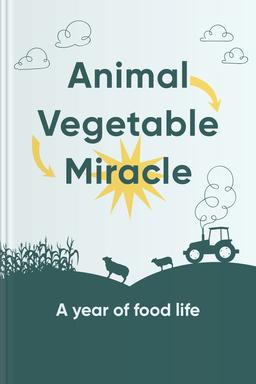What is Falter about?
This thought-provoking book explores the dire consequences of climate change and human activity on the planet. It examines the interplay between technology, economics, and the environment, questioning whether humanity is steering its own course towards disaster. McKibben challenges readers to confront the impending crisis and consider the choices that lie ahead, urging a reevaluation of our relationship with nature before it's too late.
Who should read Falter
- Environmental activists concerned about climate change
- Philosophers exploring human existence and futures
- General readers interested in sustainability and ecology
What is The Future is Asian about?
This insightful exploration delves into the rise of Asia in the global landscape, examining the economic, political, and cultural shifts that define the region's unprecedented influence. It argues that the future will be shaped by Asia's interconnectedness, innovation, and leadership, providing a roadmap for understanding emerging trends. Through a comprehensive analysis, it invites readers to reconsider geopolitics and the importance of Asian dynamics in our globalized world.
Who should read The Future is Asian
- Business leaders seeking insights into Asian markets.
- Students of geopolitics interested in global power shifts.
- Travel enthusiasts exploring Asia's emerging influence.
What is Zero Waste Home about?
This insightful guide empowers readers to embrace a sustainable lifestyle through practical tips and strategies for minimizing waste. Focusing on decluttering and simplifying, it encourages individuals to make eco-friendly choices in daily habits. The book covers various aspects of home life, from reducing plastic use to composting and recycling effectively, promoting a holistic approach to living with less and fostering a deeper connection with the environment.
Who should read Zero Waste Home
- Eco-conscious individuals seeking sustainable living solutions.
- Minimalists wanting to reduce clutter and waste at home.
- Families aiming to teach children about environmental responsibility.
Animal, Vegetable, Miracle
by Barbara Kingsolver, Camille Kingsolver, Steven L. Hopp, PhD
What is Animal, Vegetable, Miracle about?
This enlightening narrative chronicles a family's journey towards self-sustainability over the course of a year. Emphasizing local farming and seasonal eating, the book intertwines personal anecdotes with detailed reflections on the environmental impact of food choices. Through engaging storytelling and practical advice, it encourages readers to reconnect with the origins of their food while promoting sustainable practices and a deeper appreciation for nature.
Who should read Animal, Vegetable, Miracle
- Food enthusiasts seeking sustainable eating habits.
- Eco-conscious individuals interested in gardening and farming.
- Families wanting to explore local food sources together.
What is The Fifth Risk about?
This insightful exploration delves into the critical risks that arise from neglecting government functions and the impact on democracy. It reveals how the transition of power can lead to a lack of understanding and management of crucial governmental roles, such as disaster response, nuclear security, and data management. Through compelling narratives, it emphasizes the importance of informed leadership and the perilous consequences of ignorance in governance.
Who should read The Fifth Risk
- Political enthusiasts looking to understand governance challenges.
- Readers interested in democratic accountability and transparency issues.
- Citizens concerned about the impact of leadership on society.




